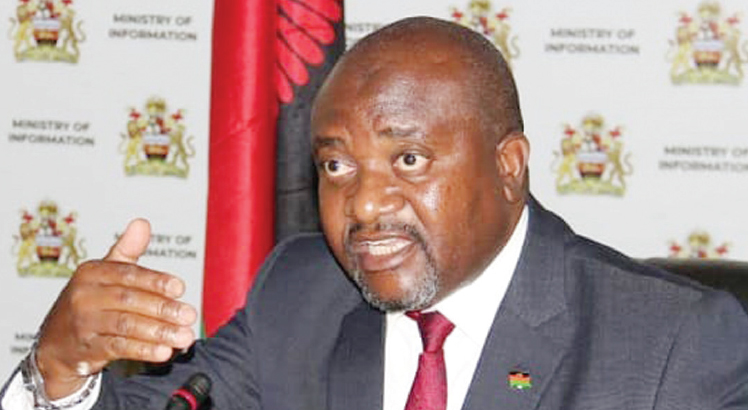
Minister of Energy Ibrahim Matola has assured electricity consumers of an end to loadshedding following the restoration of three out of four power generation machines at Kapichira Hydro Electric Power Station in Chikwawa.
The minister told a press conference in Lilongwe yesterday that to date three generation machines producing 97 megawatts (MW) have been restored at the 129MW capacity power plant knocked down by Cyclone Ana in January 2022.
Matola said the restoration of the machines has improved the country’s load shedding experienced during the damage of the equipment.
He said: “We have now recovered about 97.2 MW from the three power generating machines restored and you can see that we are having power almost every day.

“While we cannot promise to recover all the lost 129 megawatts, we can at least assure the public that this power reliability is not for short-term.”
Matola acknowledged that the frequent power outages had severe effects on the country’s economy.
“Additionally, the 21 megawatts solar power plant in Nkhotakota is in its final stage of testing. This will further improve our power capacity and stability, thereby contributing positively to the country’s industry based economy,” he said.
In an interview on the sidelines of the meeting, Electricity Generation Company (Egenco) chief executive officer William Liabunya, who attended the briefing, said the company is also working on recovery of power supply in other affected areas including those controlled by independent power producers such as Mulanje Hydro damaged by the recent Cyclone Freddy.
“It is worth noting that we have lost 3.5 megawatts from Mulanje Hydro which is owned by an independent power producer, we are working and wishing management at the company all the best as they are working on restoring the plant,” he said.
In his remarks, Escom CEO Kamkwamba Kumwenda said the demand for electricity had been suppressed for some time, making it hard for accurate forecasts of the power demand.
However, he said following the power capacity improvement, the forecasted power demand for next week has a projected evening peak of 301MW, midday peak demand of 289 MW, and morning peak of 271 MW.
“This means it is not possible to forecast accurately what true demand will be in the next few months, however, with the available data at hand the available generation capacity of all the generation units is sufficient to meet the suppressed electricity demand,” Kumwenda said.
The prolonged power rationing, according to Malawi Confederation of Chambers of Commerce and Industry, negatively affected the manufacturing industry with an estimated cost of K260 million per day,translating to K95.6 billion annually to run diesel-powered generators.
Currently, the main source of electricity in Malawi is hydro-power, which generates nearly 90 percent.
In the absence of Kapichira, Malawians were being subjected to extended hours of load shedding. Cyclone Freddy, which struck Malawi on March 12 2023, also worsened power generation.
Malawi’s power generation capacity currently stands at 400MW against a demand of 618MW.
However, the projected demand of 618MW is against Egenco’s current installed capacity of 539MW.
Source: The Nation_April 14, 2023_By Henry Mhango-Staff Writer
